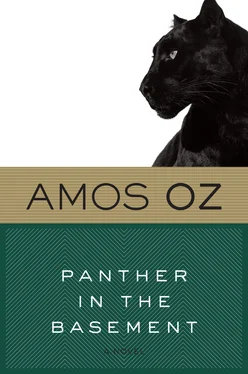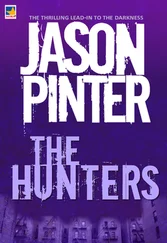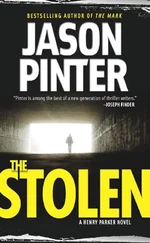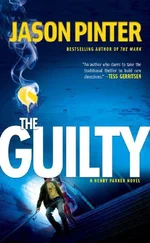What about him? Why didn't he write to me? Because he couldn't. After all, I hadn't even told him my name. ("I'm Proffy," I had said to him, "a Jew from the Land of Israel." That's not a sufficient postal address.)
Where in the world are you, Stephen Dunlop, my shy enemy? Wherever you are, in Singapore or Zanzibar, have you found yourself another friend to take my place? Not a friend, a teacher and pupil. Even that is not the right description. What then? What was there between us? To this day I cannot explain to myself what it was. And what do you still remember from the homework I made you do?
I speak as I may.
I have a couple of acquaintances who live in Canterbury. Ten years ago I wrote to them asking them to see if they could find out about him.
Without success.
One of these days I shall pack a small bag and set off for Canterbury myself I'll hunt through old telephone directories. I'll check in the churches. I'll inquire in the municipal archives. PC 4479. Stephen Dunlop, asthmatic, fond of gossiping, a pink cotton-wool Goliath. A solitary, gentle enemy. A believer in the Prophets. A believer in signs and miracles. If by some miracle, Stephen, this book finds its way into your hands, please drop me a line. Send me a picture postcard, at least. A couple of lines, in Hebrew or English, whichever you prefer.
In September there were more searches. There were imprisonments and a curfew. A lever from a hand grenade was found in Chita's apartment and one of his fathers was taken away for questioning (the other one turned up the same evening). Our teacher Mr. Zerubbabel Gihon denounced the Babylonians again in class, and also expressed his doubts as to whether the prophet Jeremiah spoke as befitted a prophet in days of war and siege. In Mr. Gihon's view, when the enemy is at the gate, the duty of a prophet is to raise the people's spirits, to unite their ranks, and to pour out his wrath on the foe outside the walls, not on his brethren inside. Above all, a prophet worthy of his name must not insult the royal family and the national heroes. But the prophet Jeremiah was an embittered man and we must try to understand and forgive him.
My mother put up two orphans in our apartment for a few weeks. They were clandestine immigrants and their names were Oleg and Hirsch, but Father declared that henceforth they were to be known as Tzvi and Eyal. We laid the spare mattress out for them on the floor in my bedroom. They were eight or nine years old; they themselves did not know how old they were. And we mistakenly took them for brothers because they had the same surname, Brinn (which Father Hebraized as Bar-On). But it turned out that they were not brothers, they were not even related; in fact, they were enemies. However, their enmity expressed itself quietly, without violence and almost without words: they knew no Hebrew and it seemed as though they could only talk a little in another language. Despite their hatred of each other, they fell asleep at night on their mattress curled up together like a couple of puppies. I tried to teach them Hebrew and to learn from them something that I could not identify and still cannot explain today, though I knew it was something that those two orphans understood a thousand times better than I did, and better than most grown-ups. After the festivals they were taken away in a pickup truck to a pioneer youth village. Father gave them our old suitcase and my mother packed it with clothes that I had outgrown, asked them to share them without quarreling, and stroked their heads, which had been shorn for fear of lice. When they were sitting huddled up in the far corner of the truck, Father said to them:
"A new chapter is beginning in your lives."
And my mother said:
"Come and see us. The spare mattress will always be waiting for you."
Yes, I told my parents about Yardena. I had to. That is, about the night they went to the commemoration in Tel Aviv and she slept in their room and after midnight a wounded man turned up and Yardena dressed his wounds and before the day dawned he slipped out of the apartment and was gone. I heard it all but saw nothing.
Father said:
"Ho, my Kinneret, were you there or was it all just a dream?"
I answered angrily:
"I wasn't dreaming. It really happened. There was an injured man here. I'm sorry I told you about it, because you only make fun of me."
Mother said:
"The boy's telling the truth."
And Father:
"Indeed? If that is so, we shall have to have a word with that young lady."
Mother said:
"It's none of our business."
And Father:
"But it was definitely a betrayal of trust."
Mother said:
"Yardena isn't a child any more."
And Father:
"No, but this child is a child. And in our bed, too, and who knows what sort of vagrant it was? Anyway, we'll talk about this later, just you and I. As for Your Lordship," he said, "off to your room with you and get on with your homework." Which was unfair, because my father knew perfectly well that I always did my homework as soon as I came home from school, first thing, sometimes even before eating the food that was waiting for me in the icebox. But I deserved it because it was unfair of me to tell them about Yardena and the injured man. On the other hand, how could I not tell them? Wasn't I doing my duty? Third. Fourth. Everything I told that I shouldn't have; everything that I should have told but didn't. So I went to my room, and this time, too, I locked the door on the inside and I refused to open it and hardly answered them till the next morning. Even when they knocked on the door. Even when they threatened me with punishment. Even when they were alarmed (and I was quite sorry for them but didn't let on). Even when my father said to my mother, on the other side of the door, raising his voice on purpose:
"Never mind. It's not so terrible. It won't hurt him to think things over in the dark." (He was right about this.)
That evening, alone in my room, hungry but proud and resentful, I thought something like this: Surely there are other secrets in the world apart from liberating the Homeland and the Undergrounds and the British. Hirsch and Oleg, who were taken away in a truck to become pioneers, were they perhaps really brothers who were pretending, for some reason of their own, to be strangers and enemies? Or were they strangers who sometimes pretended to be brothers? One must observe and keep quiet. Everything has a shadow of some kind. Maybe even a shadow has a shadow.
Less than a year after that summer, the English left our Land. The Hebrew State was established. The night it was created it was attacked from every direction by invading Arab armies, but it fought and won and since then it has fought and won over and over again. My mother, who once studied nursing at the Hadassah Hospital, tended the wounded at the first-aid station at the Shibboleth newsstand. At night she was sent to inform the next of kin of those who had been killed, together with the young doctor, Magda Gryphius. In between dealing with the wounded and the dead, she lived at her institution, looking after her orphans. She slept two to three hours a night on a camp bed in the storeroom. She hardly ever came home. During the war months she took up smoking, and from then on she always smoked, with a bitter expression, as though the cigarettes filled her with disgust. My father continued to compose slogans, but now he also drew up manifestos and leaflets for the fighting units, and he also attended an accelerated course on the use of the mortar. Setting his glasses at a slight angle by raising the arms and thus lowering the lenses a little, he would, responsibly, logically, and correctly dismantle, oil, reassemble a homemade mortar, screwing each screw sternly, as though he was adding a particularly significant footnote to his book. Ben Hur, Chita, and I filled hundreds of sandbags, helped to dig trenches, and carried messages in a crouching run from one position to another in the days when Jerusalem was besieged and being heavily shelled by the guns of the Kingdom of Transjordan. One shell decapitated an olive tree and the younger of the Sinopsky brothers as he was sitting under the tree with his brother, eating sardines. After the war the elder brother moved to Afula, and the grocery shop was taken over by Chita's two fathers in partnership.
Читать дальше












